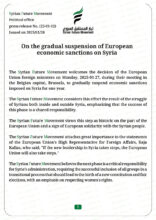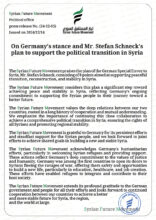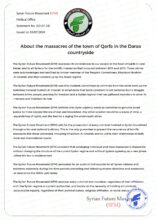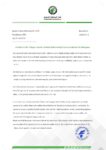On the Early Recovery Strategy in Syria
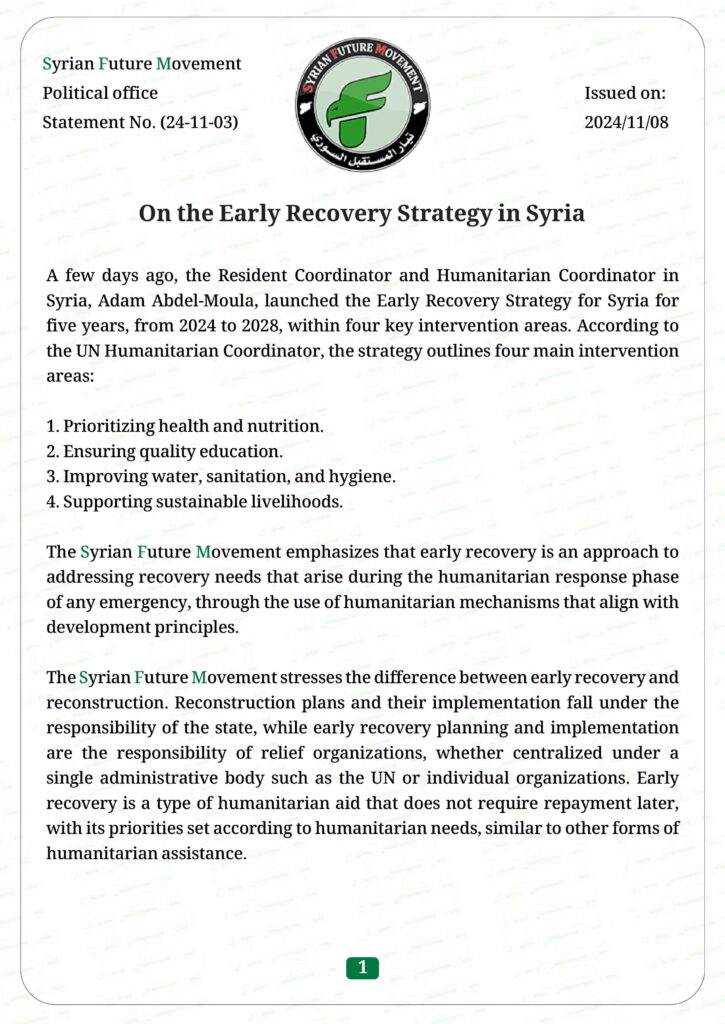
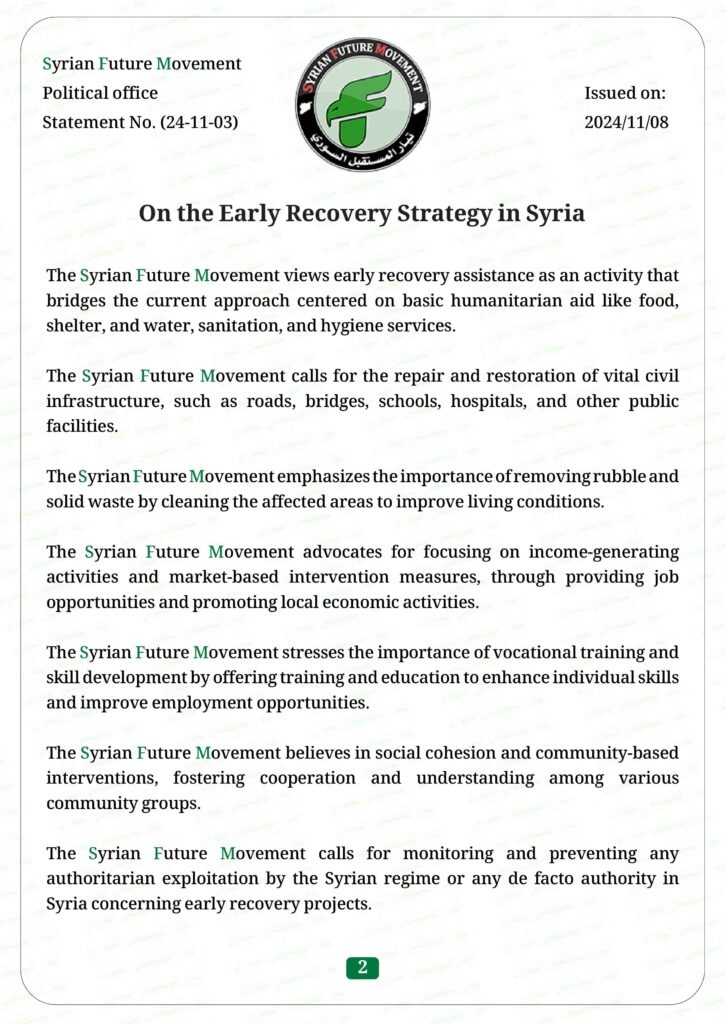
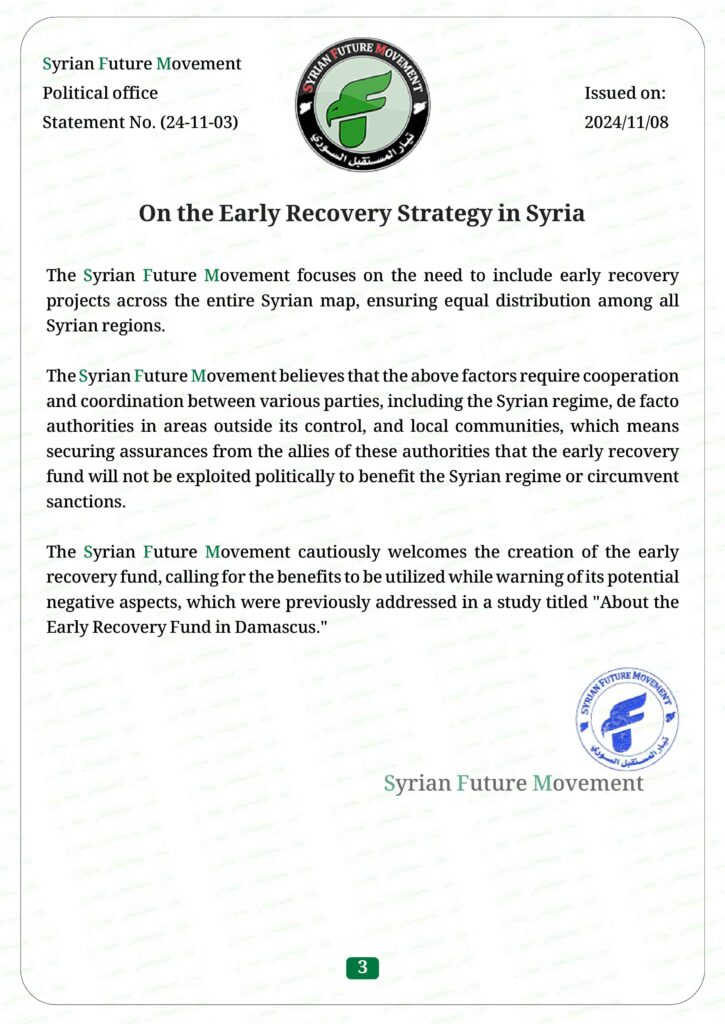
A few days ago, the Resident Coordinator and Humanitarian Coordinator in Syria, Adam Abdel-Moula, launched the Early Recovery Strategy for Syria for five years, from 2024 to 2028, within four key intervention areas. According to the UN Humanitarian Coordinator, the strategy outlines four main intervention areas:
- Prioritizing health and nutrition.
- Ensuring quality education.
- Improving water, sanitation, and hygiene.
- Supporting sustainable livelihoods.
The Syrian Future Movement emphasizes that early recovery is an approach to addressing recovery needs that arise during the humanitarian response phase of any emergency, through the use of humanitarian mechanisms that align with development principles.
The Syrian Future Movement stresses the difference between early recovery and reconstruction. Reconstruction plans and their implementation fall under the responsibility of the state, while early recovery planning and implementation are the responsibility of relief organizations, whether centralized under a single administrative body such as the UN or individual organizations. Early recovery is a type of humanitarian aid that does not require repayment later, with its priorities set according to humanitarian needs, similar to other forms of humanitarian assistance.
The Syrian Future Movement views early recovery assistance as an activity that bridges the current approach centered on basic humanitarian aid like food, shelter, and water, sanitation, and hygiene services.
The Syrian Future Movement calls for the repair and restoration of vital civil infrastructure, such as roads, bridges, schools, hospitals, and other public facilities.
The Syrian Future Movement emphasizes the importance of removing rubble and solid waste by cleaning the affected areas to improve living conditions.
The Syrian Future Movement advocates for focusing on income-generating activities and market-based intervention measures, through providing job opportunities and promoting local economic activities.
The Syrian Future Movement stresses the importance of vocational training and skill development by offering training and education to enhance individual skills and improve employment opportunities.
The Syrian Future Movement believes in social cohesion and community-based interventions, fostering cooperation and understanding among various community groups.
The Syrian Future Movement calls for monitoring and preventing any authoritarian exploitation by the Syrian regime or any de facto authority in Syria concerning early recovery projects.
The Syrian Future Movement focuses on the need to include early recovery projects across the entire Syrian map, ensuring equal distribution among all Syrian regions.
The Syrian Future Movement believes that the above factors require cooperation and coordination between various parties, including the Syrian regime, de facto authorities in areas outside its control, and local communities, which means securing assurances from the allies of these authorities that the early recovery fund will not be exploited politically to benefit the Syrian regime or circumvent sanctions.
The Syrian Future Movement cautiously welcomes the creation of the early recovery fund, calling for the benefits to be utilized while warning of its potential negative aspects, which were previously addressed in a study titled “About the Early Recovery Fund in Damascus.”

